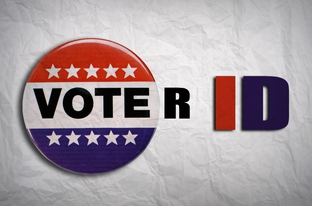Still No Answers in Voter ID Case

Whether or not the state’s voter ID bill will be in place for the November general election is still a mystery. That’s because the U.S. Department of Justice — which is being sued by Texas Attorney General Greg Abbott’s office after it declined to approve the measure — is accusing the state of stalling the delivery of key data the federal government says is necessary for the trial.
Late last month, DOJ asked the district court in Washington D.C. that will hear the care to postpone the trial, which is scheduled to commence July 9. The feds have argued that Abbott’s office is reluctant to turn over information because it knows it will hurt its case. Abbott has argued that the request is nothing more than political theater.
“They initially requested a later trial date, knowing full well that such a late trial would foreclose any possibility of Texas implementing SB 14 in time for this year’s general election,” the AG's response reads. “Having lost the initial battle in this Court over the trial date, their fallback strategy is transparent: bombard the State with massive discovery requests.”
In an order dated May 1, the court did not sound too receptive to the Obama administration’s request.
“At this juncture, the Court is disinclined to grant the motions and is committed, if at all possible, to decide this case in time for the law, if pre-cleared, to be effective for the November 2012 elections,” the court wrote.
A status conference was held this week to allow the parties to hash out details in the hopes of proceeding with the case in a timely fashion. The court’s decision on the continuance is pending.
As the debate continues, supporters and opponents are not relenting. The conservative National Center for Public Policy Research released an analysis alleging that U.S. Attorney General Eric Holder’s attempt to block the bill is based on “flimsy research” that ignores prior U.S. Supreme Court action upholding similar laws.
“The foot-dragging, the shoddy statistical analysis and the decision to ignore U.S. Supreme Court precedent reveal either a beleaguered Justice Department incapable of maintaining a professional level of operation or a rogue agency willfully placing its weight on one side of the scale of justice,” adjunct fellow Horace Cooper wrote.
Not to be outdone, Project Vote released a study last month saying that state governments that support voter ID laws, and defend them as a means to prevent voter fraud, are a drain on resources.
The group explains that in Pennsylvania, the free voter ID cards and the voter-education programs required by that state’s law cost taxpayers between $5 million and $11 million. A provision of Texas’ law also mandates free-ID and voter-education provisions. The fiscal note on the bill indicates that had the law been enacted in January, it would have cost the state about $2 million this year.
“Those who oppose photo voter ID often say that voter ID is a solution in search of a problem," argued Michael Slater, the executive director of Project Vote. "This is true, but it would more accurate to say that photo voter ID is an expensive solution in search of a virtually non-existent problem."

